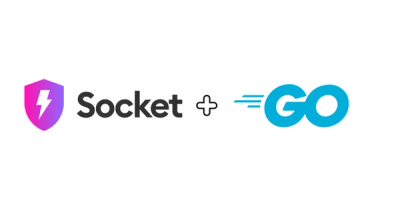
Research
npm Malware Targets Telegram Bot Developers with Persistent SSH Backdoors
Malicious npm packages posing as Telegram bot libraries install SSH backdoors and exfiltrate data from Linux developer machines.
hardhat-secure-accounts
Advanced tools
This plugin provides a secure way of storing private keys to use with Hardhat. The keys are encrypted using a user-provided password and stored using keystore. The plugin also provides several ways of unlocking and using the accounts to sign transactions and messages.
Why
A few reasons why you might want to use this plugin:
.env file or secrets.jsonWhat
What this plugin can do for you:
.keystore folder, you should gitignore this folder as an extra security measure.Exercise caution when using this plugin! For any serious production work you should use more reliable and safe ways of securing your keys/contracts such as hardware wallets, multisigs, ownable contracts, etc.
Because of how repl works it's not possible to use most of the popular prompt libraries while working on repl environments such as npx hardhat console. The plugin supports these environments via usage of prompt-sync which is a project that's not actively maintained (and it doesn't look as nice!). Please use with caution.
To install on your hardhat project, just run
npm install hardhat-secure-accounts
And add the following statement to your hardhat.config.js:
require("hardhat-secure-accounts");
Or, if you are using TypeScript, add this to your hardhat.config.ts:
import "hardhat-secure-accounts";
To add an account to your project, run the following command:
npx hardhat accounts add
You'll be prompted for an account name, mnemonic and password and the account will be stored under the .keystore folder (unless you specify a different path via plugin configuration).
To remove an account from your project, run the following command:
npx hardhat accounts remove
You'll be prompted for an account nameand the account will be deleted.
You can list the accounts you have added to your project by running:
npx hardhat accounts list
This plugin offers two methods for unlocking accounts and several ways of using the unlocked account. Depending on your workflow you might want to choose one over the other.
Accounts can be unlocked using:
With the unlocked account you can:
ethers' Wallet)hardhat's EthersProviderWrapper)hardhat's SignerWithAddress)Hardhat environment extension (recommended)
The plugin extends hardhat's environment with several convenience methods to unlock accounts. You can use these methods to get a signer, wallet or provider instance to use with your scripts and tasks:
import hre from 'hardhat'
const signer = await hre.accounts.getSigner()
console.log(`Account ${signer.address} unlocked!`)
See API reference for a complete list of the available methods.
Hardhat tasks
For a quick account unlock using the CLI:
npx hardhat accounts unlock
This can be useful to validate an account password but not much else since the account only remains unlocked until the task ends its execution. If you want to use it in the context of a script/task you can run the task programmatically:
import hre from 'hre'
import { TASK_ACCOUNTS_UNLOCK_SIGNER } from 'hardhat-secure-accounts'
const signer = await hre.run(TASK_ACCOUNTS_UNLOCK_SIGNER)
console.log(`Account ${signer.address} unlocked!`)
See API reference for a complete list of the available tasks.
| Task | CLI | Hardhat task | Hardhat environment extension | Description |
|---|---|---|---|---|
| Unlock wallet | npx hardhat accounts unlock:wallet | TASK_ACCOUNTS_UNLOCK_WALLET | await hre.accounts.getWallet() | Returns the main wallet from the mnemonic derivation path. Return type: Wallet |
| Unlock wallets | npx hardhat accounts unlock:wallets | TASK_ACCOUNTS_UNLOCK_WALLETS | await hre.accounts.getWallets() | Returns multiple wallets (20) derived from the mnemonic. Return type: Wallet[] |
| Unlock signer | npx hardhat accounts unlock | TASK_ACCOUNTS_UNLOCK_SIGNER | await hre.accounts.getSigner() | Returns the main signer from the mnemonic derivation path. Return type: SignerWithAddress |
| Unlock signers | npx hardhat accounts unlock:signers | TASK_ACCOUNTS_UNLOCK_SIGNERS | await hre.accounts.getSigners() | Returns multiple signers (20) derived from the mnemonic. Return type: SignerWithAddress[] |
| Unlock provider | npx hardhat accounts unlock:provider | TASK_ACCOUNTS_UNLOCK_PROVIDER | await hre.accounts.getProvider() | Returns a provider with pre-configured local accounts based on the mnemonic. Return type: EthersProviderWrapper |
Optional parameters
For convenience, all of the tasks and methods listed above have optional parameters that allow passing the name and password of the account to unlock. If any of the optional parameters are provided the plugin will not prompt the user for that input. This might be useful for scripting or testing purposes.
Example using the different API's:
import hre from 'hardhat'
// This will prompt the user ony for the account password
const signer = await hre.accounts.getSigner('goerli-deployer')
console.log(`Account ${signer.address} unlocked!`)
// This will not prompt the user for any input
const signer2 = await hre.run(TASK_ACCOUNTS_UNLOCK_SIGNER, { name: 'goerli-deployer', password: 'batman-with-cheese' })
console.log(`Account ${signer2.address} unlocked!`)
Or using the CLI:
# This will prompt the user only for the account password
npx hardhat accounts unlock --name goerli-deployer
By default accounts are stored in the root of your hardhat project in a .keystore folder. You can change this by adding the following to your hardhat.config.js:
require('hardhat-secure-accounts')
module.exports = {
solidity: '0.7.3',
defaultNetwork: 'hardhat',
paths: {
accounts: '.accounts',
},
};
Or if you are using TypeScript, modify your hardhat.config.ts:
import { HardhatUserConfig } from 'hardhat/types'
import 'hardhat-secure-accounts'
const config: HardhatUserConfig = {
solidity: '0.7.3',
defaultNetwork: 'hardhat',
paths: {
accounts: '.accounts',
},
...
}
export default config
FAQs
Account management plugin for Hardhat
We found that hardhat-secure-accounts demonstrated a healthy version release cadence and project activity because the last version was released less than a year ago. It has 1 open source maintainer collaborating on the project.
Did you know?

Socket for GitHub automatically highlights issues in each pull request and monitors the health of all your open source dependencies. Discover the contents of your packages and block harmful activity before you install or update your dependencies.

Research
Malicious npm packages posing as Telegram bot libraries install SSH backdoors and exfiltrate data from Linux developer machines.

Security News
pip, PDM, pip-audit, and the packaging library are already adding support for Python’s new lock file format.

Product
Socket's Go support is now generally available, bringing automatic scanning and deep code analysis to all users with Go projects.